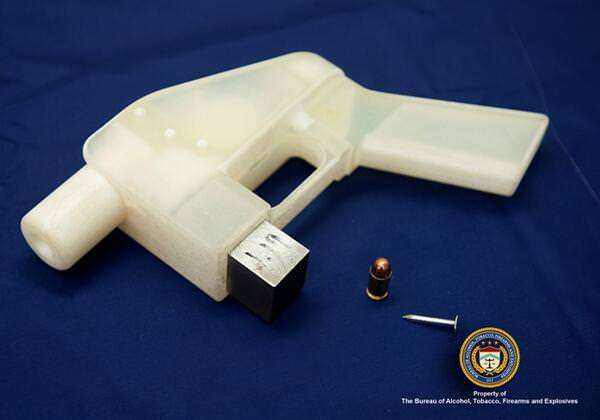ATF Tests 3D-Printed Guns, Finds They Go "Bang"

Perhaps a little late to the game, the Bureau of Alcohol, Tobacco, Firearms, and Explosives has joined its counterparts in Austria, Germany, and elsewhere in purchasing 3D printers to see what this fuss about what Reason's Brian Doherty calls "the unstoppable plastic gun" is about. Like everybody else, the folks at the all-you-need-is-a band-and-it's-a-party agency discovered that 3D-printed guns do, in fact, go bang, though whether they do so in the intended way depends on the material you use to build them.
The ATF chose the Liberator, the first successfully fired model, to test. Innovators have since moved on to rifles, pepperboxes, semiautomatics, and even a Model 1911 printed from stainless steel.
Videos posted online on the ATF's YouTube channel (yes, really) show a Liberator built from ABS plastic firing without drama, while a model printed in translucent VisiJet shatters in spectacular fashion. (Pro tip: Don't use VisiJet when printing your own gun.)
A helpful fact sheet posted online promises that "ATF makes every effort to keep abreast of novel firearms technology and firearms trafficking schemes." It also outlines the strict regulations governing firearms manufacture and sale and vows that "ATF investigates any cases in which technological advances allow individuals to avoid complying with these laws."
Of course, the whole advantage of 3D printing technology, and other innovations that enable DIY manufacture of restricted and forbidden objects, is that they render the law largely unenforceable, since the activity takes place away from officious eyes. You can put any statute you want on the books, but there's not much you can do to regulate what goes on in home workshops.
Which is why the Department of Homeland Security has pronounced 3D-printed guns "impossible" to control.


Show Comments (28)